
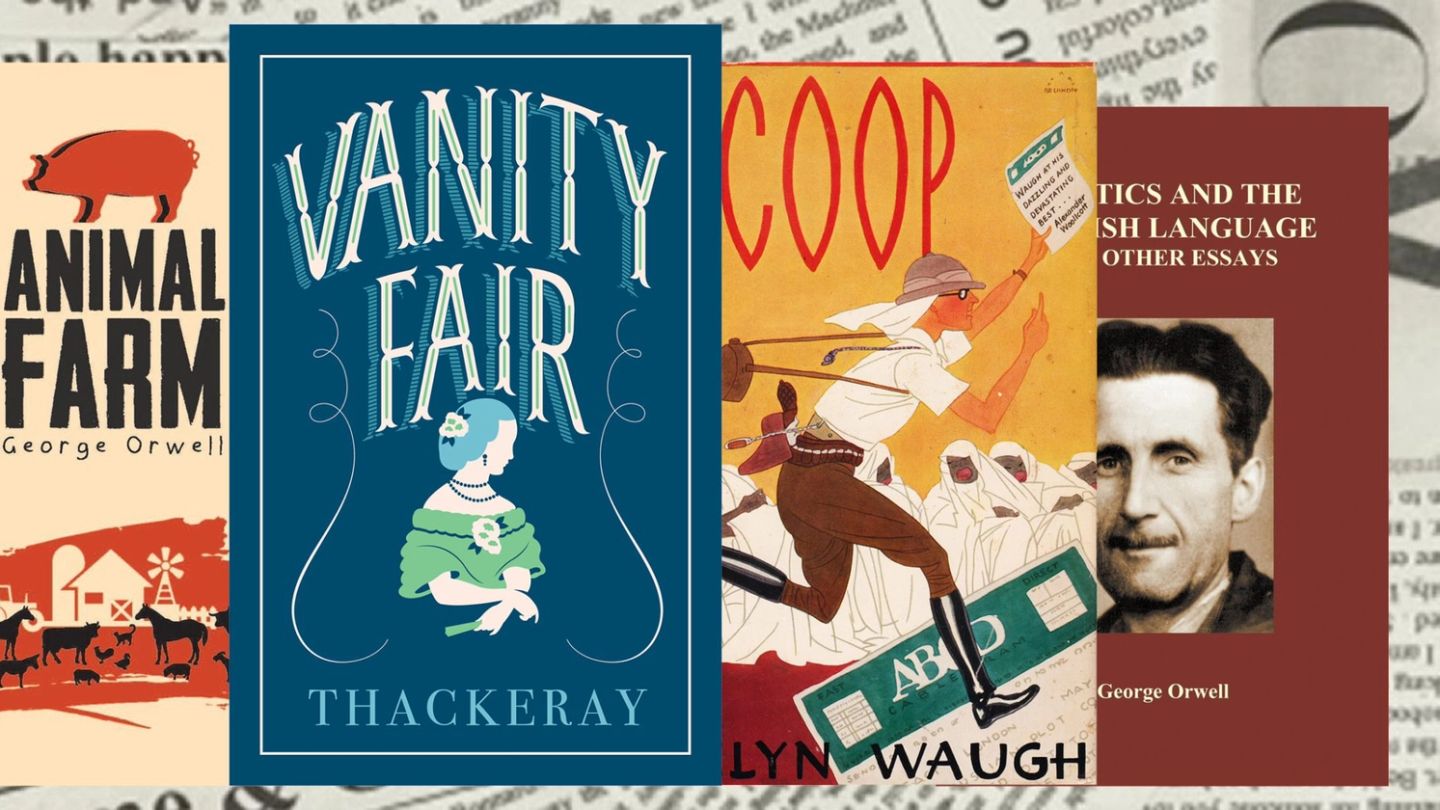
Jonathan Lynn on history’s great political satires
The writer behind Yes Minister offers up the comedic works that are more relevant than ever…
Words: Zoe Dickens
Coronavirus. Brexit. Big tech. Diminishing privacy. It’s easy to take a quick glance at your Twitter feed and think the world is teetering on the dystopian edge. So, whether it comes from one of London’s best comedy clubs, a new Netflix series or a great book, we could all do with a laugh right now. Happily the annals of literature are full of satirical classics that speak directly to the current moment – and few people know their way around the political library better than Jonathan Lynn. Here the English writer, director and actor who co-created Yes Minister gives us his pick of the world’s greatest political satires…
A Modest Proposal by Jonathan Swift
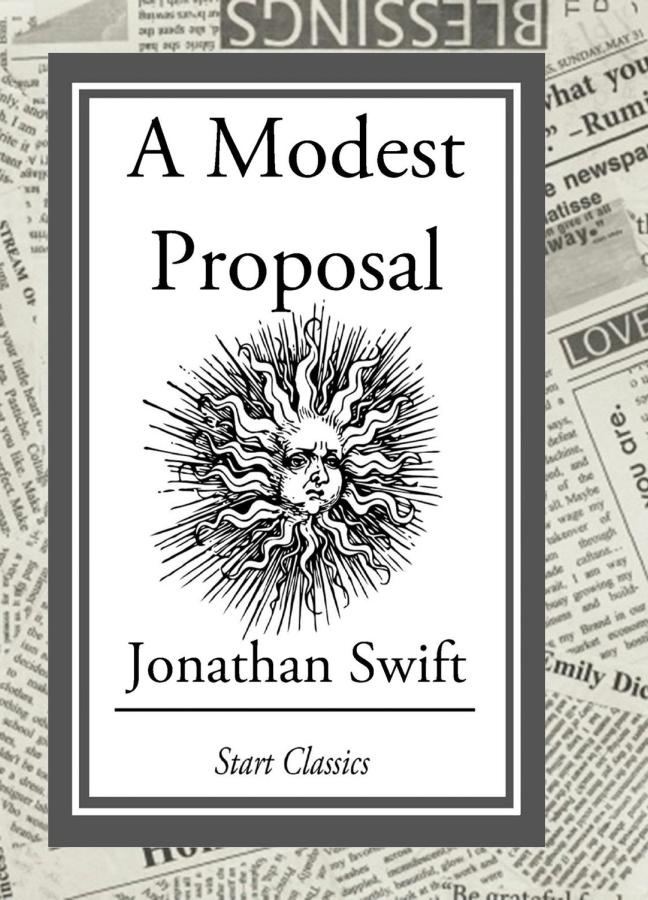
A Modest Proposal was written in 1729 and is maybe the first great English satirical essay. It’s full title is A modest proposal for preventing the children of poor people from being a burden to their parents or country and making them beneficial to the public. It’s about the Irish famine and proposes the poor Irish could solve their economic troubles by selling their babies as food to the rich. It’s a masterpiece. It’s absolutely written straight faced without a hint of comedy – except, of course, that the whole thing is so horribly absurd. It mocks the heartless attitudes of the rich towards the poor and British policy towards Ireland.
My favourite quote is, “A young healthy child, well nursed, is at a year old a most delicious, nourishing, and wholesome food, whether stewed, roasted, baked or boiled, although I make no doubt that it will equally serve in a fricassee, or ragout.” It’s a really angry, bitter essay that evokes the vocabulary of raising animals for food – people turn into animals and then into meat and then, from meat, logically into food at a certain price per pound. This essay may be the basis for all satire in English literature.
Animal Farm by George Orwell
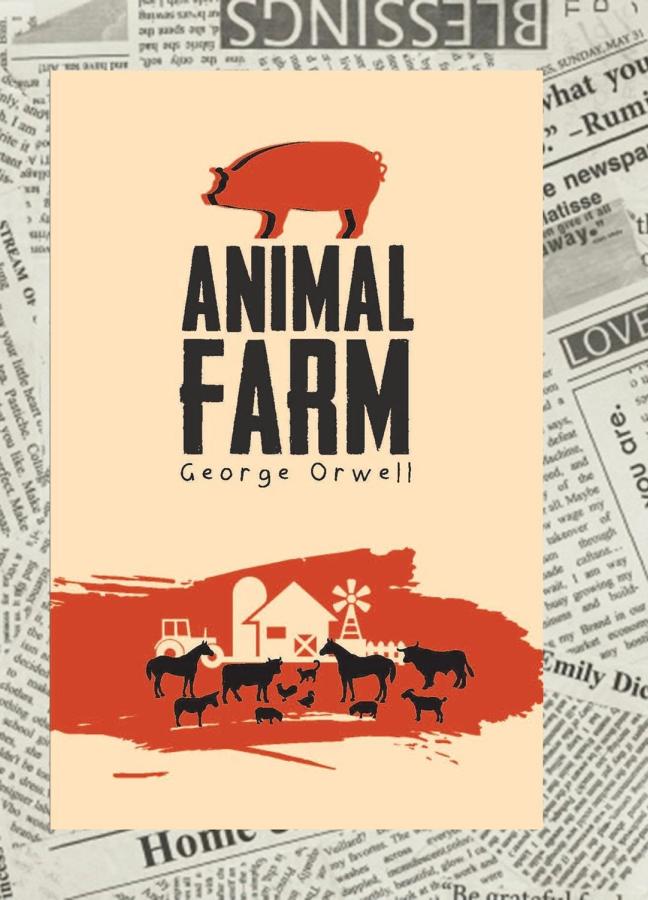
Animal Farm was published in 1945 and tells the story of a group of farm animals who rebel against their brutal farmers and hope to create a society where animals can be equal and free and happy. People say it’s about the rise of Communism, and Orwell was possibly anti-Communist, but it’s really about any totalitarian society. The most famous quote from Animal Farm is, of course, “All animals are equal but some are more equal than others.” Although the rebellion is done in the name of equality, it rapidly turns into another brutal dictatorship like the one it replaced – just like how the Soviet Politburo and Stalin replaced the Tsars.
Vanity Fair by William Makepeace Thackeray
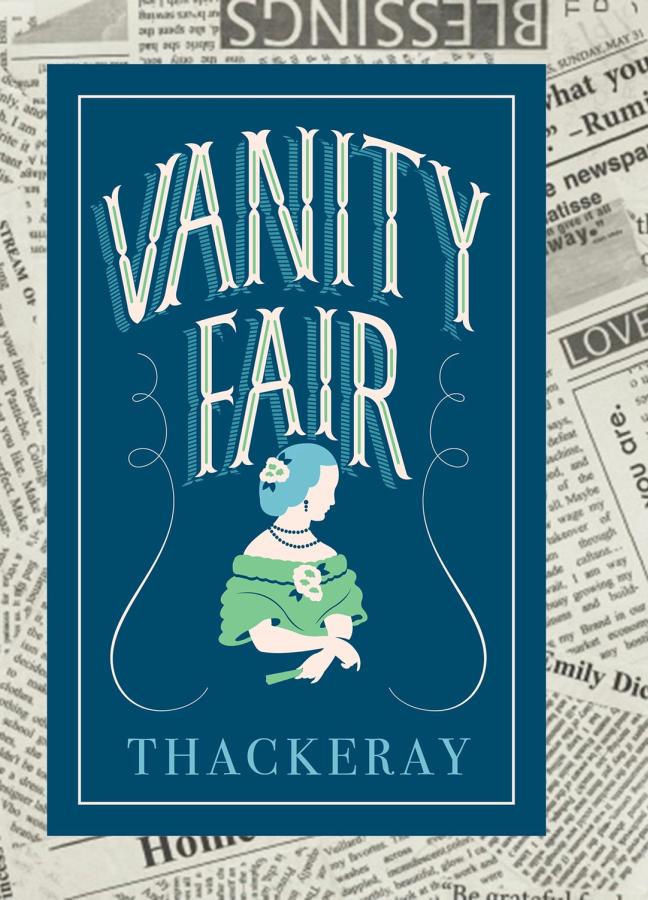
Written in 1848, Vanity Fair is the first great satirical English novel and the main character Becky Sharpe, unusual at the time for being a female protagonist, is a classic anti-hero. She’s from a very poor background; she’s ruthless, charming, manipulative, resourceful and utterly devoted to improving her own life at the expense of anyone else. But Thackeray makes her attractive because of her wit and talent and because we share her contempt for the hypocrisies of society. It’s a satire on British society and the values of that time and Becky is absolutely unrepentant right to the very end.
It’s also not generally known that Becky was used as a model for Scarlett O’Hara in Gone With the Wind – which is, of course, a mediocre and racist best seller and an apology for the confederacy – but has its roots in Vanity Fair.
Politics and the English Language by George Orwell
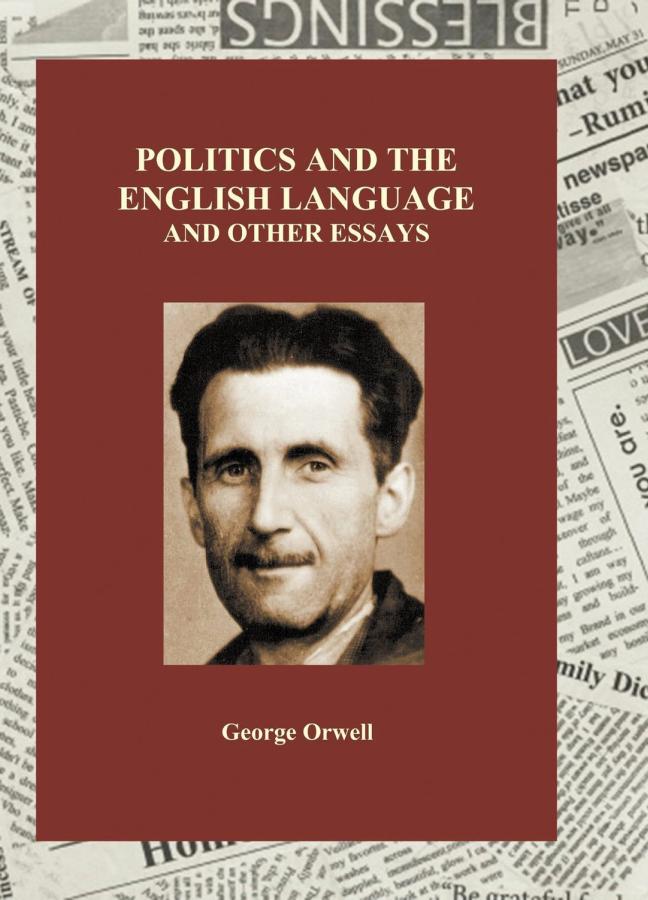
This book is about how you can design language to make lies sound truthful, to make murder respectable and to give the appearance of solidity to pure wind. It was a big influence on me and Tony Jay when we were writing Yes Minister because both James Hacker and Sir Humphrey use language as a means to obscure the truth. They use language not as a curtain to be lifted but as a curtain to be drawn across. It’s a very short book but really worth reading.
Catch-22 by Joseph Heller
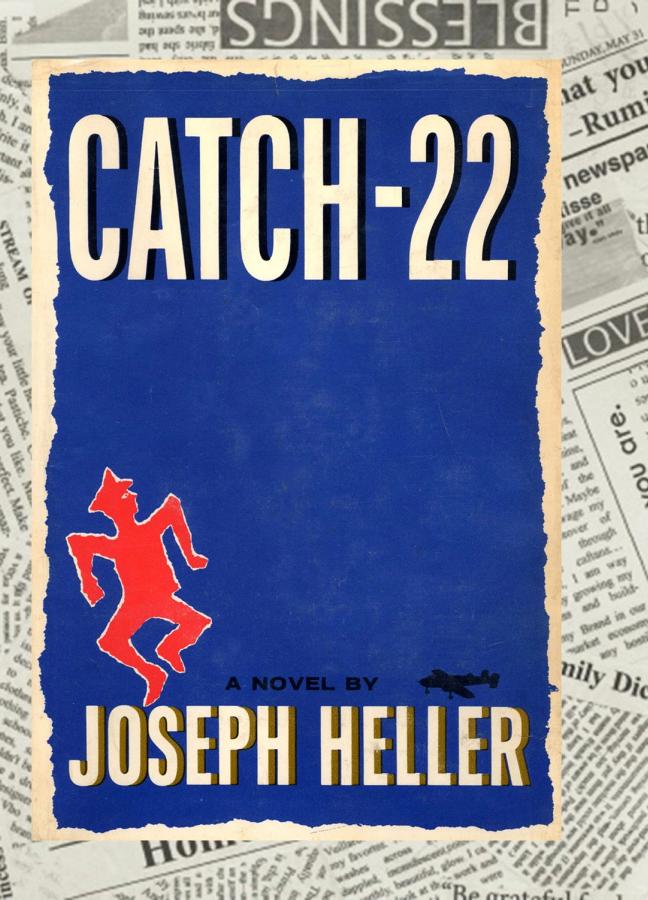
A great satire on the military in particular and bureaucracy in general. I think it’s by far and away the outstanding World War II novel. The titular Catch-22 refers to a US Airforce rule whereby a bomber pilot committing to fly dangerous combat missions without asking for relief is regarded as insane but, if you do ask for relief, then that proves you’re sane after all so you have to keep flying. If you’re crazy you don’t have to fly a mission – but you must be crazy to fly. This is how, in common parlance, a Catch-22 has come to mean a no-win situation. The whole thing is about bureaucratic absurdity.
One of the extraordinary things about the book is that it really doesn’t have any minor characters. It’s so enormous that all the characters are really fleshed out. It has a hugely complicated structure and took eight years to write; it’s full of paradox and irony and the whole thing is pervaded by an air of mass insanity caused by deranged logic. An absolutely wonderful book.
Scoop by Evelyn Waugh
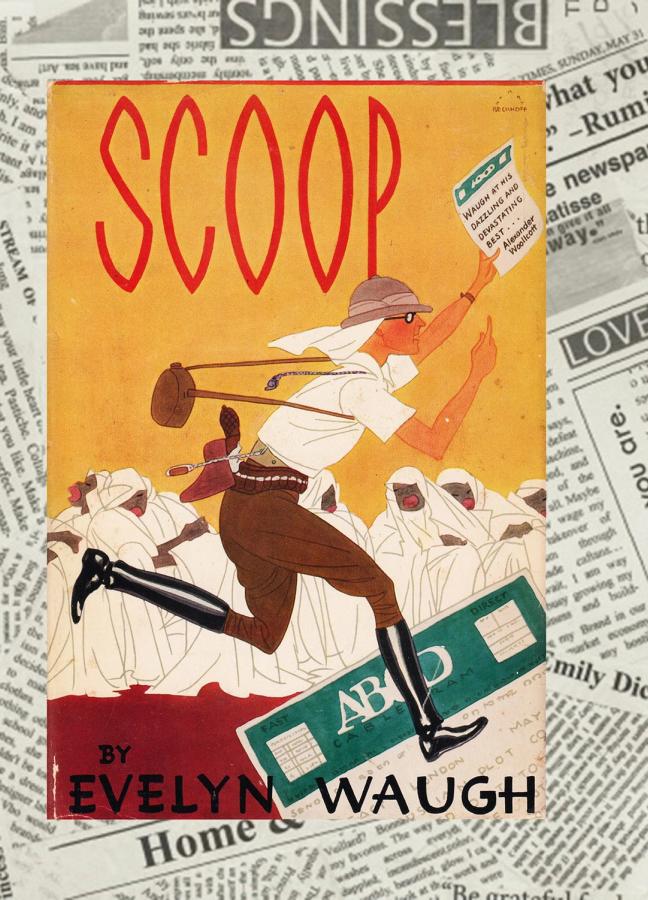
This is a satire about sensationalist newspapers and foreign correspondents. Written in 1938, the proprietor of newspaper the Daily Beast, Lord Copper, sends a journalist called Boot to cover a ‘promising little war’ in Africa. Boot does get a scoop in the end but is not given credit for it because that’s the kind of journalist he is.
Lord Copper seems to have been some combination of Lord Northcliffe and Lord Beaverbrook, the owners of the Mail and the Express and Standard respectively. The book is about the impact and influence of scary newspaper proprietors and really is still applicable to Rupert Murdoch, The Sun and The News of the World and, I think, to the Barclay brothers who own The Telegraph.
Jonathan Lynn will speak with Ayesha Hazarika on 12 March at the Groucho Club as part of London Book & Screen Week Festival.
For more escapism, check out the best new books coming out in 2020…
Join the Gentleman’s Journal Clubhouse here.


